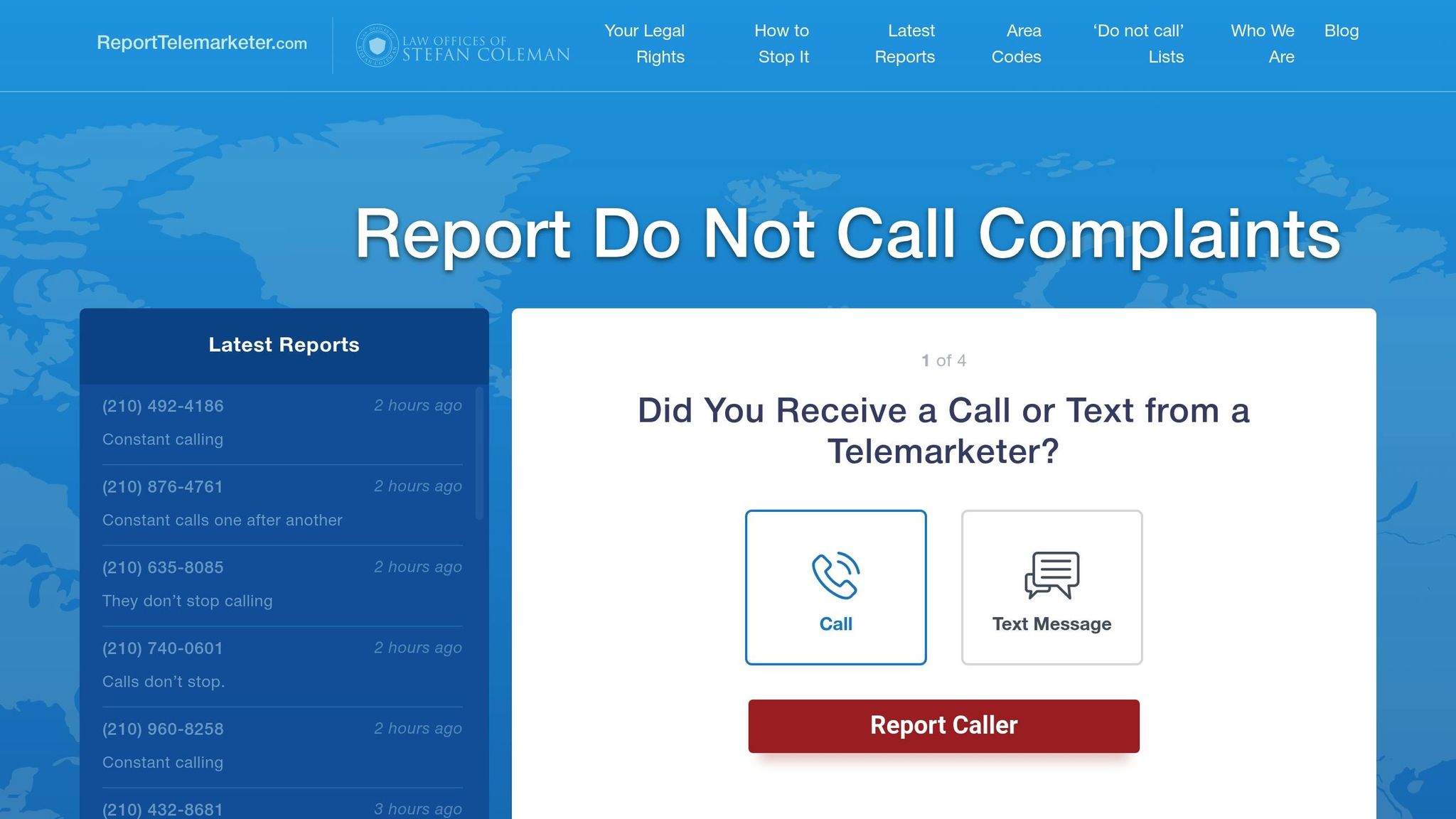
TCPA compliance ensures businesses respect consumer privacy by requiring prior consent for automated calls and messages. To meet these standards, secure data practices like encryption are essential. Here’s what you need to know:
- Key TCPA Rules: Consent is mandatory for automated communications. Unauthorized use of auto-dialers, pre-recorded messages, or texts can lead to penalties.
- Encryption Standards: Use AES-256 for data storage, Perfect Forward Secrecy (PFS) for transmissions, and SHA-3 for hashing to protect consumer data.
- Recent Court Cases: Decisions like Williams v. DDR Media emphasize the role of encryption in compliance, especially for automated systems.
- 2025 FCC Rules: New guidelines require quantum-resistant encryption for long-term storage and SOC 2/ISO 27001 certifications for third-party vendors.
Encryption isn’t just about security – it’s critical for legal compliance, managing consent records, and safeguarding sensitive consumer data. The article dives deeper into encryption methods, legal updates, and practical steps to ensure compliance.
2025 TCPA Changes You NEED to Know
Court Cases and Legal Standards
These updates build on the FCC’s earlier guidance regarding consent management and its evolving requirements.
Major Court Decisions on Data Security
The Williams v. DDR Media case in 2024 provided clarity on how automated data processing fits into TCPA compliance. The United States District Court for the Northern District of California determined that Jornaya’s TCPA Guardian software, which employs a one-way cryptographic hashing algorithm, does not qualify as "reading" or "learning" communications under California’s Invasion of Privacy Act (CIPA). This is an important intersection with TCPA enforcement.
"The court emphasized that TCPA Guardian’s hashing process is purely algorithmic and lacks the capacity for comprehension."
The hashing process is irreversible, operates in milliseconds, and uses only temporary memory storage. This contrasts with D’Angelo v. Penny OpCo, LLC, where the active analysis of communications to create transcripts was deemed a violation of CIPA’s interception rules. These cases highlight how the choice of encryption methods can directly influence compliance outcomes under TCPA, especially when automated systems are involved.
2025 FCC Encryption Rules
The FCC’s 2025 rules outline specific encryption and security requirements:
| Requirement | Technical Specification |
|---|---|
| Storage Encryption | AES-256 minimum for all stored data |
| Transmission Security | Perfect Forward Secrecy (PFS) for all sessions |
| Hashing Standards | SHA-3 or newer cryptographic algorithms |
| Third-Party Security | SOC 2/ISO 27001 certifications, encrypted APIs/SFTP, and breach protocols |
These technical standards put into practice the "reasonable measures" principle referenced in earlier compliance guidelines.
sbb-itb-a8d93e1
Data Encryption Methods
Recent court rulings, such as Williams v. DDR Media, highlight the importance of encryption methods in shaping legal decisions. These technical measures play a crucial role in protecting sensitive information and ensuring compliance.
Key Encryption Types
To safeguard data in various states, modern compliance strategies rely on specific encryption methods:
| Data State | Encryption Type | Purpose |
|---|---|---|
| Voice Communications | SRTP | Secures real-time voice data |
| Customer Records | ECC-256 | Protects personally identifiable information |
Advanced encryption continues to be essential for securing data during processing.
Data Security Guidelines
Protecting sensitive information effectively involves focusing on three main areas:
Database Security
Use automatic database encryption with column-level protection for critical fields. Combine this with access controls and audit logging to monitor database interactions. These practices align with the ‘reasonable measures’ standard often referenced in TCPA case law.
Key Management
A strong key management system is critical for encryption. Key components include:
| Component | Requirement |
|---|---|
| Master Keys | Stored in Hardware Security Modules (HSM) |
| Data Keys | Stored in encrypted formats |
| Session Keys | Use Perfect Forward Secrecy for added protection |
Secure Transfer Protocols
For file transfers, rely on SFTP with 4096-bit RSA keys to ensure secure data exchanges. Regular automated checks and manual audits help maintain compliance over time.
Reporting TCPA Violations
Encrypted data plays a key role in reporting and prosecuting TCPA violations. By using modern encryption methods, tamper-proof evidence can be provided to build strong cases against illegal telemarketers while safeguarding consumer information.
Using Encrypted Data in Cases
Since the Facebook, Inc. v. Duguid decision in 2021, encrypted call logs have become essential for proving the use of automated dialing systems. In the 2024 Johnson v. TechCorp case, the court ruled that encrypted metadata – such as call patterns and frequency – can be used as admissible evidence, even if the actual communication content is unavailable.
| Evidence Type | Legal Weight |
|---|---|
| Call Logs | Primary Evidence |
| Consent Records | Critical Documentation |
| Text Messages | Supporting Evidence |
ReportTelemarketer.com Services

Platforms like ReportTelemarketer.com use encryption to simplify the reporting process. Their services include:
- Privacy-focused encrypted analysis of complaint patterns
- Secure APIs for transferring encrypted data to authorities
- Cryptographically verified storage for court-admissible evidence
In the Dish Network lawsuit, encrypted logs from this platform revealed over 51,000 violations, leading to a $210 million judgment. This case demonstrated how encryption not only supports large-scale enforcement but also ensures data remains secure.
Summary and Future Outlook
Key Developments
TCPA compliance has seen stricter requirements as of 2025, emphasizing stronger encryption methods and real-time threat management. Systems now rely heavily on quantum-resistant encryption for data storage and real-time measures for secure transmissions, especially in areas like consent management and verification.
Advancements in Data Security
As technology and regulations advance, businesses must adapt to stay compliant. One promising solution is homomorphic encryption, which allows companies to process encrypted customer data without exposing it. This addresses challenges in consent verification, as highlighted in TCPA Basics.
"The upcoming 2025 FCC encryption rules are expected to require quantum-resistant encryption methods for long-term data storage", shared FCC Commissioner Jessica Rosenworcel during a January 2025 regulatory briefing.
Looking ahead, the adoption of blockchain for its unchangeable ledgers could replace older methods like SFTP protocols. This shift aligns with zero-trust models, which ensure every data access attempt is verified. Additionally, AI-driven encryption is emerging as a powerful tool to counter new threats, offering stronger safeguards for consumer data and consent records. These advancements aim to meet evolving compliance demands while staying ahead of potential risks.